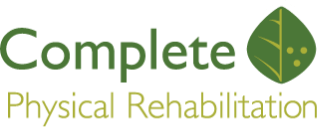After a slow start to our summer here on the East Coast, the season is in full swing now. The weather is becoming a little less raining, and temperatures are steadily rising. With the better weather comes more outdoor running for all my clients. And with more outdoor running comes the same general line of questions: How do I combat the heat when I’m running outside?
The answer is pretty simple: stay hydrated.
Running in the heat can really throw your body for a loop if you don’t stay properly hydrated. The common medical consensus is that running in the heat is much harder because your body is now using most of its energy to keep your body and skin cool. This leaves less energy for your muscles while your running, which is why you feel tired much faster when running in hotter weather. In addition, heat + humidity can make it harder for your sweat to evaporate, and thus, in turn, harder for your body to properly expel heat.
If you stay properly hydrated, then you should be able to maintain your normal level of training even as the weather heats up. Here are some hydration tips that I give all my outdoor runners:
Drink Throughout The Day, Not Just Before You Run
The common misconception is, “It’s going to be a hot day, so I’m going to drink a lot of water before I run outside.” Chugging large quantities of water right before you run is not consistent with proper hydration methods. Doing so can actually lead to over-hydration, leading to your body overworking in order to expel excess water. Proper hydration involves drinking a consistent amount of water all day long, and not just before an activity.
Drinking The Proper Amount Of Water
So, what is the right amount of water to drink? For my runners, I like the equation on naturodoc.com. Let’s take a 160 lb person. Using the equation, the water intake per day should be the following:
- Water requirement (75% of body weight for active individuals): 120 oz
- Add for strenuous exercise (+16 oz): 136 oz
- Divide by the average number of hours awake per day (assume 16 hrs): 8.5 oz
So, on an average day, this active runner should be consuming 8.5 oz of water on average per hour. In addition to this equation, I encourage my runners to get in the habit of weighing themselves pre- and post- run. If you are 100 lbs pre-run, and 98 lbs post-run, you should consume 16 oz of water (2 lbs) to replenish the lost weight from your run.
Maintain Electrolytes
Gel Packs during a run have become a popular method of making sure that you have enough electrolytes. Gatorade after a run has also been a tried and true method of replacing electrolytes in the body. If you’re a profuse sweater, it is even more essential to be aware of electrolytes.
Keep Your Skin Cool
Sunburn is one of the main culprits that diverts precious energy away from your muscles during a run. When your skin temperature gets too hot, your body sends most of its energy to cool the surface of the skin. So, if you keep your skin cool, most of your energy will be spent on the maintenance of your muscles and core temperature. Sport sunscreens specifically made for strenuous activity are the obvious choice here. In addition, don’t dump frigid ice water over your head after a run. Doing so can actually cause the blood vessels to constrict in your head, sending heat back into the body and causing you to cool down slower. You can pour some cool water on yourself in order to help lower your body temperature. Remember: “cool” is the key here, not “frigid”
In general, sticking to these tips will help you to handle the heat better. In addition, like all other strenuous activities, your body will adjust with time. After a week or two, your body will naturally adjust to the heat and you’ll find yourself maintaining and recovering much better than when you started.
Dr. James Pumarada is a Physical Therapist and co-owner of Complete Physical Rehabilitation, a Physical Therapy practice based in Elizabeth and Jersey City, NJ. As a Sports Therapy Certified Specialist, he has been specifically guiding and training runners of all experience levels for over 15+ years.
